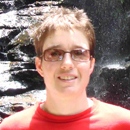Advisory Board and Editors Bioinformatics

Swapneeta Date
Dr. Swapneeta Date is an award-winning researcher and protein biochemistry expert, with over eight years of experience encompassing multidisciplinary research in microbiology, biochemistry, biophysics, physiology, bioinformatics, and biotechnology with several first-author publications, presentations, awards, and scholarships. She has more than five years of experience in managing multidisciplinary teams, executive committee operations, STEM activities, budget, and resources.

Martin Daumer
Dr Martin Daumer: Director of the SLCMSR e.v. - The Human Motion Institute in Munich and managing director of the IT company, Trium Analysis Online GmbH. He is also visiting lecturer for Telemedicine and Clinical Applications of Computational Medicine at the Technical University Munich.
Dr Daumer received a diploma in Physics in 1990 and a Ph.D. in mathematics from the Ludwig-Maximilians-University Munich in 1995, after having worked at CERN, Switzerland, and Rutgers University, USA.

Melissa J Davis
Associate Professor Melissa Davis is a computational biologist and Laboratory Head in the Bioinformatics Division of the Walter and Eliza Hall Institute of Medical Research. Her background is in genetics and computational cell biology with expertise in the analysis of genome-scale molecular networks, systems biology, and knowledge-based modelling of regulatory networks.
In 2014, Melissa was awarded a four year National Breast Cancer Foundation Career Development Fellowship, and took up a position as Senior Research Fellow in Computational Systems Biology at the University of Melbourne, before moving to the Walter and Eliza Hall Institute for Medical Research as a Laboratory Head in 2016. Melissa specialises in the integration of genomic, transcriptomic, and proteomic data with knowledge-based network models to understand the regulatory logic of mammalian systems.

Robson F de Souza
Assistant Professor at the University of Sao Paulo, Brazil; Past Visiting Fellow Researcher at the National Center for Biotechnology Information, NIH, MD/USA; Ph.D. in Biochemistry from the University of Sao Paulo.

Ana Tereza Ribeiro de Vasconcelos
Ana Tereza Vasconcelos is Senior Researcher Scientist at the National Laboratory for Scientific Computing and coordinator of the Bioinformatics Laboratory and the Computational Genomics Unit Darcy Fontoura de Almeida at National Laboratory of Scientific Computation (LNCC). Her team has experience in the area of Bioinformatics and Computational Biology. Using High Performance Computing and AI working on the following topics: Genomics, Development of software applications in Bioinformatics and computational tools applied assembly, annotation and comparison of genomes, metagenomics, exomes and transcriptomics applied to many different model organisms. Since 2020 he has worked in the generation and analysis of SARS-CoV-2 genomes, mainly in the identification of new lineages.

Charlotte M. Deane
Professor of Structural Biology and Director of the Systems Approaches to Biomedical Sciences Industrial Doctoral Centre at Oxford University.

Christophe Dessimoz
SNSF Professor at the University of Lausanne, Reader at University College London, and Group Leader of the Swiss Institute of Bioinformatics

Nicholas J Dickens
Associate Research Professor in Bioinformatics at Florida Atlantic University. Research focus genomics of marine organisms, environmental microbiomes and machine learning to understand genome sequence. Wellcome Trust Centre for Molecular Parasitology, University of Glasgow Bioinformatics team for 7 years and lead the team for 4 of those. Also lead an experimental sequencing team in the Centre and has a bioinformatics research group. Originally, studied Biology at Imperial College London and moved into bioinformatics at NV Organon Pharmaceuticals in the Netherlands. Following this he had a research post at the MRC Functional Genetics Unit, University of Oxford where he stayed to do his genome informatics PhD. Has held research post-doctoral posts in London working in type-2 diabetes and cardiovascular disease at Imperial College, and cancer biology at the Institute of Cancer Research.

Trang Do
Dr. Trang Do earned her PhD degree from the National University of Singapore in 2013. She is a proactive and motivated educator and data scientist, showcasing a track record of effectively managing expansive and intricate projects alongside engagements with stakeholders and government agencies. Her expertise spans data and computer science, coupled with a foundation in economics and bioinformatics, driving an ongoing pursuit of professional development. Her research interests encompass a wide scope within data science, intelligent systems, and interdisciplinary computing. Presently, her primary focus centers on machine learning, deep learning, explainable AI, data analysis, and visualization, particularly within the realms of health informatics, drug discovery, bioinformatics, tourism, and intelligent systems.

Douglas S Domingues
I am an Assistant Professor in Plant Molecular Genetics at the "Luiz de Queiroz" College of Agriculture, University of São Paulo, Brazil. My main interests are devoted to understanding gene and genome evolution in plants, working on genome-wide analyses, including transcriptional analyses of gene families relevant to plant metabolism, RNA-seq analyses in plants, as well as studies on non-coding RNAs and transposable elements.

Timothy P Driscoll
Associate Professor at West Virginia University Department of Biology. PhD in Genomics, Bioinformatics, and Computational Biology from Virginia Tech. Our research centers on the distribution, evolution, and design of interventions for zoonotic and vector-borne infectious diseases. I focus on Rickettsiales and other intracellular pathogens, using phylogenomics and related approaches to understand virulence and pathogenicity.

Robert Druzinsky
I am an evolutionary biologist and functional morphologist with diverse interests. My major focus is on the evolution of the masticatory apparatus of mammals, particularly rodents. I am also working on an anatomy ontology for muscles of the head and neck in tetrapods. I also study the biomechanics of teeth, as well as the neurophysiology of mastication.

